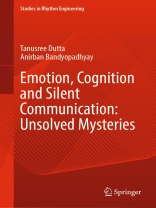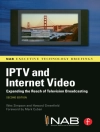This book provides an answer to the readers about scientific perspective on learning. It presents a culminating point of four different kinds of studies designed to measure and understand the nuances of brain functioning. The objective of this book is to find answers to four questions: (1) can there be a neuroscientific understanding of the concept of individual differences? (2) does rhythmic sound or noise have an impact on decision making? (3) how does transfer of learning between the hemispheres facilitate the learning process? and lastly (4) beyond the accepted ways of communicating verbally and non-verbally is silent communication possible? This book makes an attempt to address these issues through various aspects of inner-conscious engineering.
Inhaltsverzeichnis
Unsolved Mysteries of the Mind and the Brain: Fractal Brain Hypothesis.- Quantized Interhemispheric Energy Transfer: Learning Motorized Tasks.- Universal Thermal Markers of Human Emotions: Geometric-Biological Invariants for Emotional Transitions.- Are Errors Indicative of Learning Strategies: Use It or Minimize It?.- DDG, An Electromagnetic Version of EEG Finds Evidence of A Self-Operating Mathematical Universe (Somu) When a Human Subject Converses With an Artificial Brain.- Silent Group Discussion Using Only Via a Visual Contact Under a Dim Light: Testing Collective Decision-Making.- Quantized Thoughts as Structure of Time: Cognitive Engineering for AI: An Octave Drawing Test for Mathematical Structure of a Subconscious Mind.- Happiness as a Local Invariant of Pain: A Perspective on Spontaneous and Induced Emotions.- Social Awareness Against Sexual Harassment Triggering Excitatory Cognition Could be Negated using a Pure Awe Experience.- The Genesis of Classifying Humans for their Diversified Brain Hardware in the Light of Somu Theory of Consciousness.
Über den Autor
Dr. Tanusree Dutta is presently working as Associate Professor in the Indian Institute of Management, Ranchi. Dr. Dutta obtained her Postgraduate and Doctorate degrees from Banaras Hindu University and Indian Institute of Technology, Kharagpur, in 2000 and 2004, respectively. She received the M.M. Sinha Endowment Scholarship in 1998-99, B.H.U. Merit and Prize Award in 1999, and a gold medal in Masters in Psychology in 2000. Dr. Dutta was Assistant Professor at Banaras Hindu University in the Psychology Section. She has also served on lien as Assistant Professor in the Management Department of B.I.T., Mesra, Indian Institute of Technology Rajasthan. She has research publications in peer-reviewed national and international journals which have been cited in manuscripts and books of national and international repute. She has co-authored a book titled “Neuromarketing in India: Understanding the Indian Consumer” and has a co-edited book titled ”Bias in Human Behaviour”.
Anirban Bandyopadhyay is principal research scientist at the National Institute for Materials Science (NIMS), Tsukuba, Japan. He has done Ph.D. in Supramolecular Electronics at the Indian Association for the Cultivation of Science (IACS), Kolkata, 2005. From 2005 to 2008, he was ICYS Research Fellow at the ICYS, NIMS, Japan, and worked on the brain-like bio-processor. In 2008, he joined as Permanent Scientist at NIMS, working on the time crystal model of human brain and design-synthesis of brain-like organic jelly, and he wrote a book “Nanobrain: The Making of an Artificial Brain from a Time Crystal”, 2020. From 2013 to 2014, he was Visiting Scientist at the Massachusetts Institute of Technology (MIT), USA. He received Hitachi Science and Technology award 2010, Inamori Foundation award 2011–2012, Kurata Foundation Award, Inamori Foundation Fellow (2011–), and Sewa Society international member, Japan.












